
Science Communicators: Research @ CCMPS
What is Science Communicators?
It’s an opportunity for CCMPS’ graduate students to help the college tell its research story. You will gain invaluable paid experience to translate research projects into engaging content for our website and social platforms. You will learn how to interview, communicate and produce communication pieces that promote the research excellence of our faculty and students. This initiative is similar to CBS’s SCRIBE program for graduate students and the University’s SPARK program for undergraduate students. Annually, Science Communicators aims to publish 36 research highlights. These research highlights are 500-word pieces that summarize and translate research publications coming out of the College. These highlights are written in plain and accessible language for broad audiences and are amplified by the College through various communication platforms, including the College website and social media (Twitter and Instagram). The CCMPS Research Manager (CRM) may approve Q&A’s with researchers or select human interest pieces on a case by case basis. The CRM serves as program coordinator and, in collaboration with College Graduate Studies Manager (CGSM) and College Marketing and Communications Manager (CMCM) edits and provides feedback to writers.
Meet our current writers
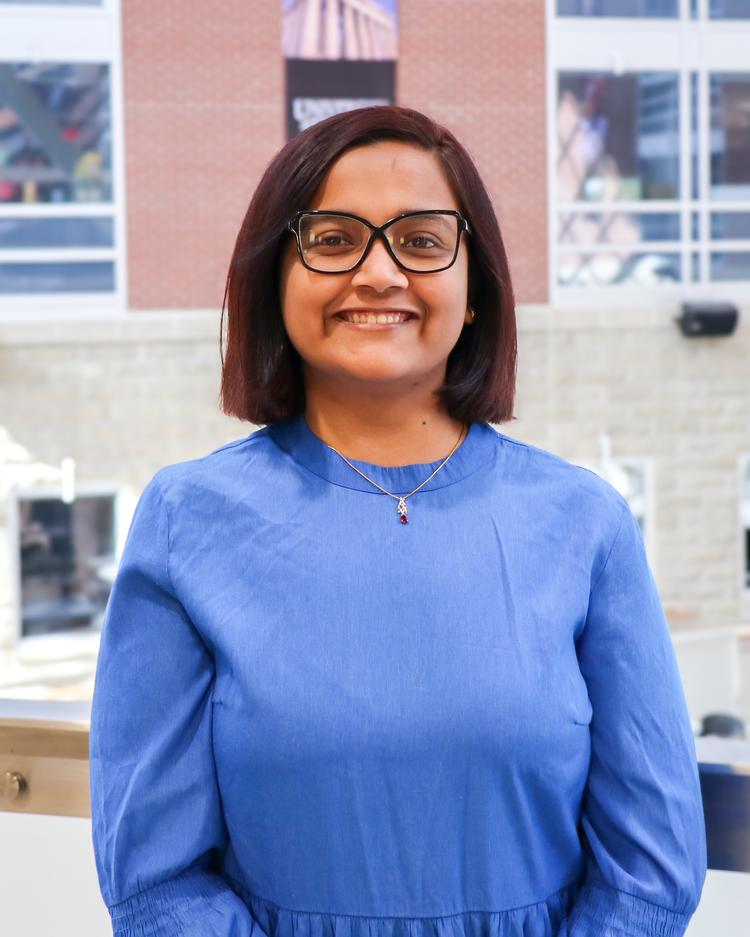
Adya Aiswarya Dash, PhD student, Water Resource Engineering
Supervisor(s): Dr. Edward A. McBean
Biography: I'm a graduate student in the exciting field of engineering as well as a voracious learner. My path combines a variety of interests and academic pursuits to satisfy my curiosity and push me to achieve success. Outside of the scholarly realm, I find comfort and motivation in a variety of artistic pursuits. Painting, dancing, and immersing myself in books are not just pastimes for me; they are essential components of who I am. As I navigate through the field of academia and beyond, I remain committed to making a positive impact in the world, one small step at a time.
Thesis Description: My research delves into the complex interplay of water, climate, and food within the Canadian Agri-Food System. I explore how AI can illuminate their interconnectedness, aiming to understand and address disruptions to food sustainability. With a focus on precision agriculture, I seek to propel agricultural practices towards greater sustainability and contribute to advancing the Sustainable Development Goals.
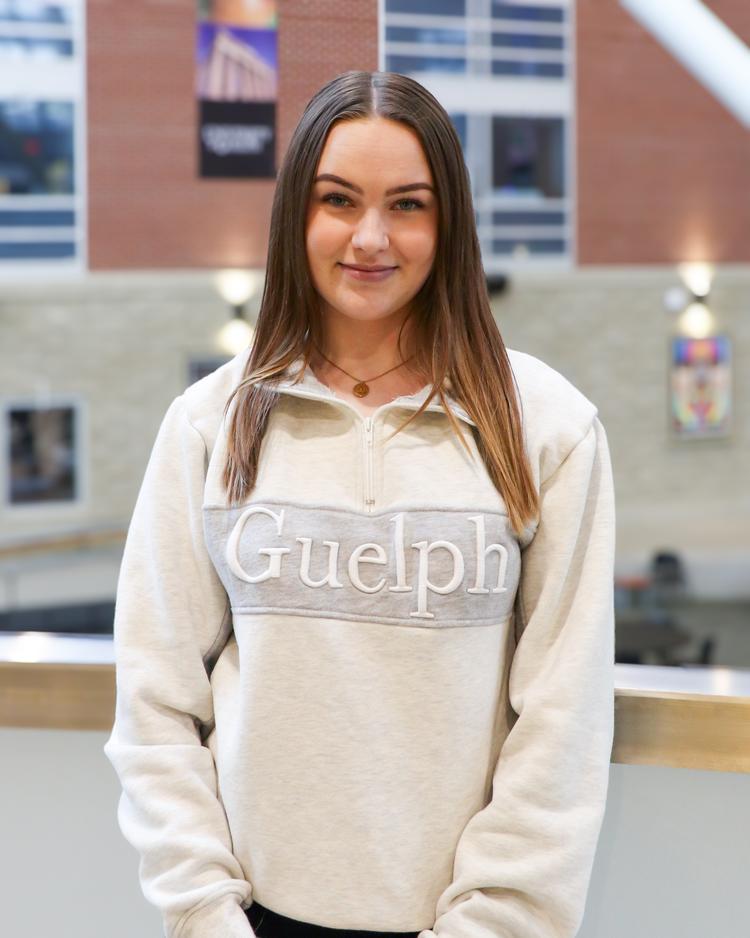
Jamie Dawson, M.Sc., Chemistry
Biography: I am currently one year into my Master's program in Chemistry at the University of Guelph and a new CCMPS Science Communicator. I completed my B.Sc at the University of Guelph, majoring in Biological and Pharmaceutical Chemistry and minoring in Microbiology. During my undergraduate degree I completed a 4th year research project in Dr. Mario Monteiro's lab, and I continued on into graduate studies working on that same project. I would consider myself a life-long learner, and I'm excited to learn and write all about the research that's occurring throughout CCMPS. When I’m not in the lab or in the graduate student office working on my research, I love spending weekends at my cottage or hiking somewhere with a good view.
Thesis Description: My research focuses on characterizing the structure of a capsular polysaccharide on the bacterium Streptococcus equi subspecies equi (S. equi) through a variety of chemical and analytical methods. My M.Sc project is to determine if that capsular polysaccharide structure can be a viable vaccine target within a glycoconjugate vaccine, against S. equi, which is the causal agent of the equine disease called 'Strangles'.
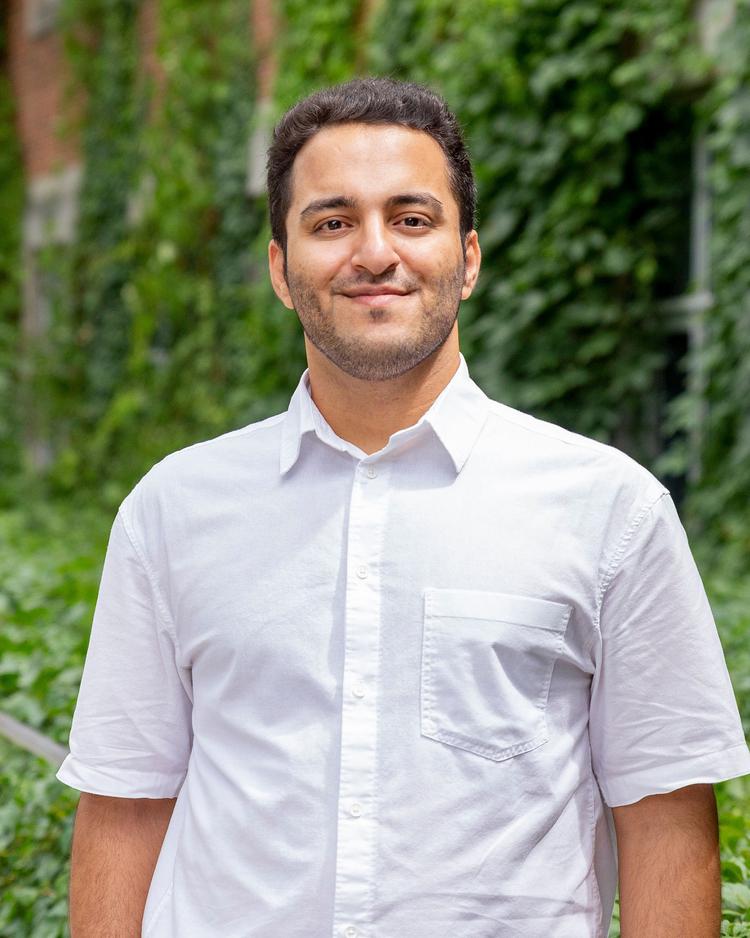
Shahriyar Ghazanfari
Biography: As the son of a brick manufacturing technician, I grew up in an environment where discussions on energy and environmental impacts were part of daily life. Frequent visits to the manufacturing sites with my father offered me firsthand experiences of energy management and utilization. This early exposure sparked my curiosity and guided my decision to pursue Mechanical Engineering and later a PhD, where I have spent nearly a decade researching renewable energy, CO2 capture and utilization, and transport phenomena in multi-phase thermo-fluid systems. Additionally, I have gained around four years of industry experience, predominantly in the oil and gas sector, where I applied my knowledge to real-world challenges. Outside of my academic and professional life, I enjoy watching movies, reading historical books, photographing nature, and traveling.
Thesis Description: My thesis focuses on understanding multi-phase transport phenomena in gas-liquid systems for waste heat recovery and CO2 capture applications, aiming to reduce energy inefficiencies and mitigate environmental impacts.
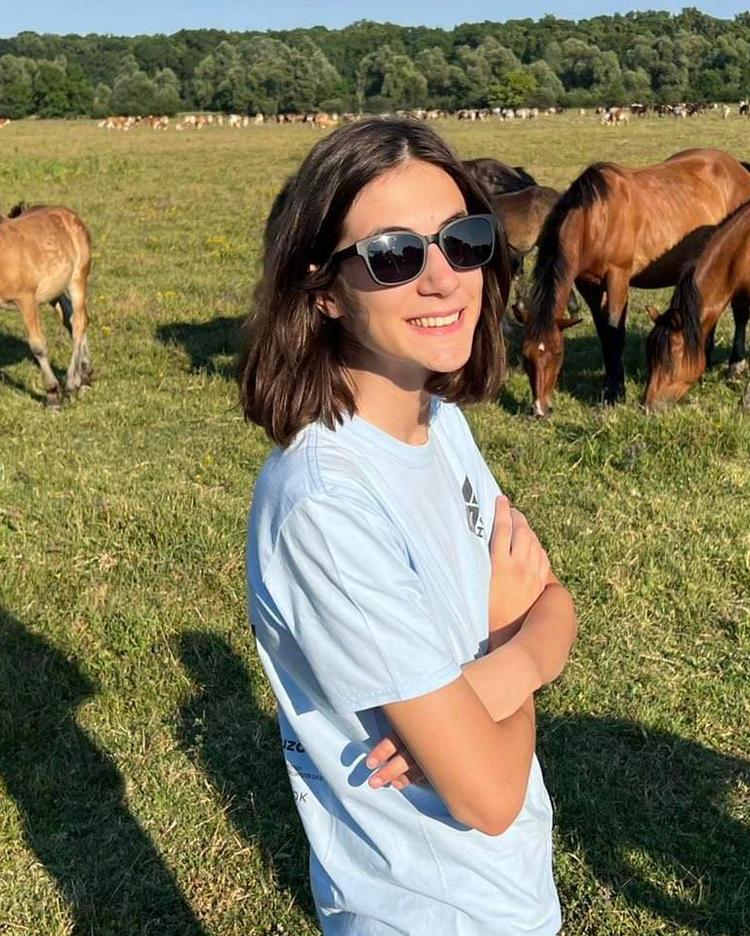
Izabela Savic, M.Sc. student, Computer Science
Biography: I am a graduate student in Computer Science with a passion for cybersecurity. My previous research includes focusing on network security, and I have also dabbled in computer forensic research and mobile ad-hoc network research. With my busy schedule as a student, in my leisure time I love spending my time at the barn with my horse.
Thesis Description: I am working on exploring defense methods against DNS exfiltration attacks, specifically DNS attacks that use adversarial pertubations to bypass machine learning packet filters.
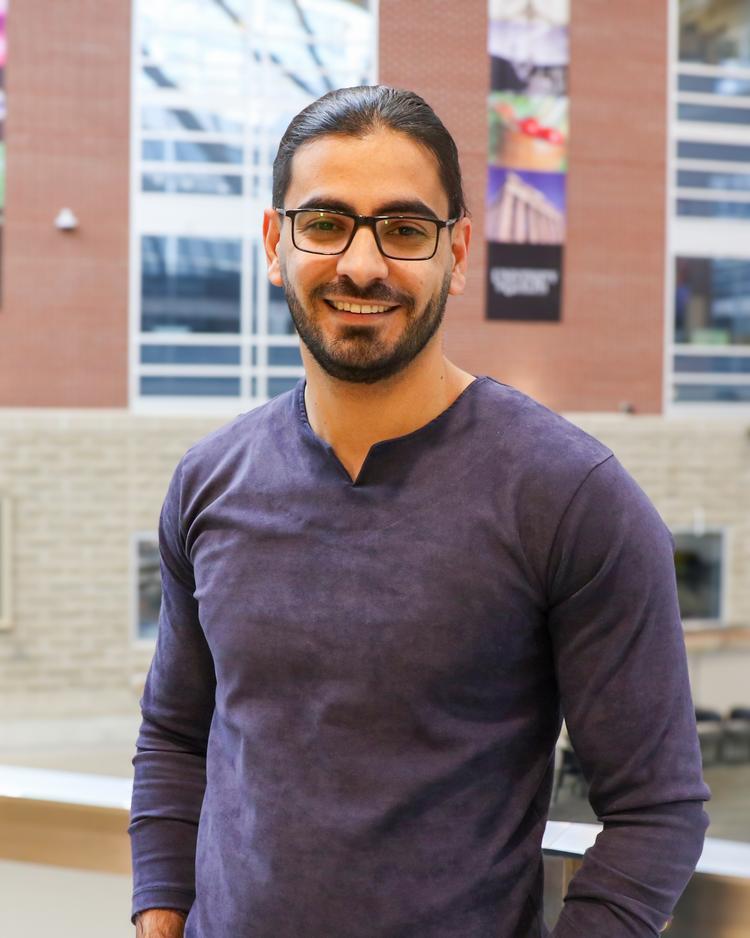
Mojtaba Safdari, PhD student, Engineering
Supervisor(s): Dr. Amir A. Aliabadi
Biography: Fueled by a passion for design and innovation, I'm a PhD student in Engineering at the University of Guelph (UOG). My academic journey began with a Bachelor's and Master's in Mechanical Engineering. During my master's program, I focused on thermal management in electric vehicles. Now, in my PhD studies, I'm applying that expertise to a different area: thermal management of buildings. When I'm not head-down in research, I enjoy exploring the outdoors on backcountry biking adventures and cooking up delicious meals in nature. I'm also a big movie fan, particularly fond of "Lord of the Rings" (which I've seen countless times!), and a video game enthusiast.
Thesis Description: My project focuses on developing an intelligent controller for a sophisticated software called VCWG. Developed by Dr. Aliabadi, VCWG can model the energy balance of an entire city and its buildings. My goal is to design a controller that integrates with VCWG, allowing for comprehensive management of all energy-related parameters within buildings, including the use of renewable energy sources. This will contribute to creating more sustainable and energy-efficient buildings.
Past Writers
Kasra Ghasemi (2023-24), PhD Candidate, Mechanical Engineering
Supervisor(s): Dr.s Syeda Humaira Tasnim and Shohel Mahmud
Mehran Bozorgi (2023-24), PhD student, Mechanical Engineering
Supervisor(s): Dr.s Shohel Mahmud and Syeda Tasnim
Carley Miki (2023-24), PhD Candidate, Biophysics
Supervisor(s): Dr. John Dutcher
How does Science Communicators work?
As a Science Communicator, you will:
- build your CV through publications and outreach
- gain valuable writing experience and training
- develop your research translation and mobilization skills
- And make a significant contribution to the communication and outreach goals of the College.
The following is a step-by-step process to get involved and participate in Science Communicators.
- Apply: student writers are apply by the set deadlines each semester. Typically, the program aims to have a maximum of 3-4 active writers per semester. Preference is given to students who have been in their program for at minimum one semester and will be in their program for at least one additional year. At the time of application, students must provide their CV and a general writing sample that is used to ensure that selected writers meet a minimum standard in terms of general writing ability (e.g., grammar, spelling and sentence structure). This writing sample should be modeled after published CCMPS research highlights. Only selected students are invited to participate in the program. Application deadlines are as follows:
- March 15
- June 14
- October 18
- Get Trained: Selected students will engage in a one-hour training workshop with the CRM. The goals of the training session are to: review the Science Communicators initiative, receive instruction and tips and tricks for writing as a CCMPS communicator, review conducting an interview with a researcher and provide time to ask questions.
- Select a Story: Once students have completed their training, it is time to select and sign up to write a research highlight. CCMPS encourages student writers to select recently published, no older than 3 months, journal articles or conference publications written by CCMPS faculty and/or students to focus their research highlight on. These articles should be in high impact journals or conferences. The CRM will approve all stories. The CRM may approve Q&A’s with researchers or select human interest pieces on a case by case basis. CCMPS publishes research highlights from each of our departments and schools equally, so students are encouraged to select pieces that ensure an equitable distribution of coverage. If students need ideas the CRM maintains a list of publications and can assist with selection.
- Write your piece: Once a student has signed up for an article, they then will have approximately 2 weeks to interview their key story subjects (typically a CCMPS faculty member, write their piece and submit a draft to the CRM. The CRM will review and edit the article as necessary to ensure quality and a reasonable level of consistency and provide the student writer with feedback. Once a final draft has been approved by the CRM, the student is responsible for sending the draft to the publishing researcher for review and final approval. The student will also be responsible for developing the story title and summary, selecting a lead story image, obtaining CCMPS faculty and student headshots, sourcing any additional images that provide a snapshot into the research, and including all pertinent links and drafting social media posts.
- Publication: When a story is approved it will be posted on the CCMPS website and shared via social media. Selected stories may also be featured in the CCMPS Annual Report and/or College newsletters.
- Get Paid: Students will be paid once a semester for all stories that they have written, submitted and published during that period. Students receive $75 per article. The CRM tracks the number of articles published per student and liaises with the CCMPS Associate Director, Finance & Operations to arrange these payments, which will be charged to the Dean’s Office.
Want to become a Science Communicator?
If you are interested please contact Bethany Davidson-Eng, Acting College Research Manager (bdavieng@uoguelph.ca).
